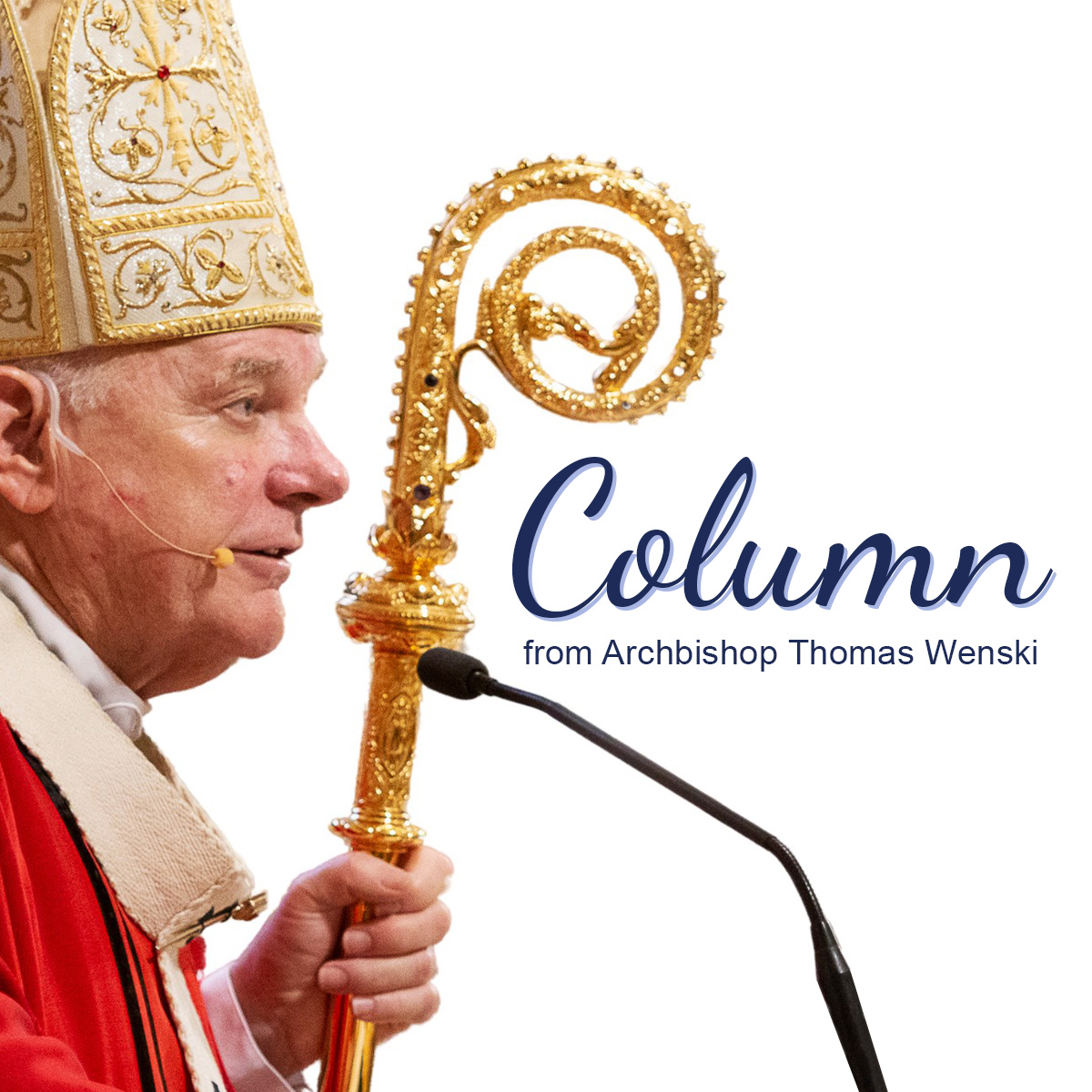By Archbishop Thomas Wenski - The Archdiocese of Miami
“We are Easter people and ‘Alleluia’ is our song,” preached St. Augustine of Hippo in the uncertain times in which he lived. He added, “Let us sing here and now in this life, even though we are oppressed by various worries, so that we may sing it one day in the world to come, when we are set free from all anxiety.”
Like St. Augustine, who lived at the time of the dissolution of the Roman Empire, we too live in uncertain times. The ongoing war of attrition in Ukraine and the violence of the Israeli-Hamas conflict cause great anxiety, as do situations closer to home. I often remind people that here in Miami we are surrounded by “islands” of pain: Haiti, Cuba, Venezuela, and Nicaragua. Almost everyone in South Florida has a personal connection with someone in one or more of those countries.
As Christians still living in the world, we do experience all manner of trials and tribulations. The reality of the cross will always be present in the world and in our own lives. But let us not forget that there is no glory without a cross, no victory without sacrifices.
The sufferings of Christ do not exempt us from suffering ourselves; but his sufferings, seen in the light of his Resurrection, give meaning and hope to our own. And so, even suffering does not take away our joy in the future promise of our own Resurrection.
That is why we must rejoice and celebrate that with Easter death has been defeated and no tomb can hold us forever; not the tomb of despair, nor discouragement, nor lack of faith nor depression. Let us learn from the Apostle Peter who, trusting in the love of Jesus, and despite having denied him, knew to run toward the empty tomb and could never again silence the Truth, nor fail to announce it to the end.
Jesus is not just a character from a far distant past. He is not remembered in the same way as the great men and heroes who lived long ago are remembered. We might talk about them — and about their deeds. But we cannot talk to them or befriend them. Jesus, however, is the same yesterday, today and forever. He lives.
Having broken the chains of death, he walks before us as one who is alive — and he calls us to follow him, the living one, and to enter a relationship of friendship with him. In this way we discover the path of life, a life that is always new because it will never die. Christ in rising from the dead saves all that is truly human and by the gift of his Spirit makes it possible for us to live no longer for ourselves but for him.
For Catholics, Easter is our return every year to our own baptism... our own “pass over” or “Pascha” into new life in Christ. Lent was a call to renewed conversion of mind and heart — a turning back to the Lord because even though we are baptized what we constantly lose and betray is precisely that which we received in baptism. And so, at Easter, we are reminded that we were created for life — eternal life that transcends the boundaries of this world and overcomes even the limitation of death. Our baptism stands as a radical witness today in a world that denies that man was created for anything else but death.
Faith in Jesus’ passion, death and Resurrection gives us the inner strength to exercise our baptismal commitment to live, in different ways, lives of service and significance.
For, in the gift of Easter, lie the demands of Easter: “If you were raised with Christ seek what is above,” St. Paul tells us. Jesus’ whole life was shaped by his obedience to his Father. For us, to live in Christ means that we will never allow the things of this world to distract us from the true purpose and goal of our existence.
We must seek to do God’s will in all things — even in the seemingly most mundane things. But doing God’s will and following the commandments does not deprive us of joy but it is what makes true joy possible. Yes, despite the sorrows and pain we experience in this “vale of tears,” Alleluia is our song.

